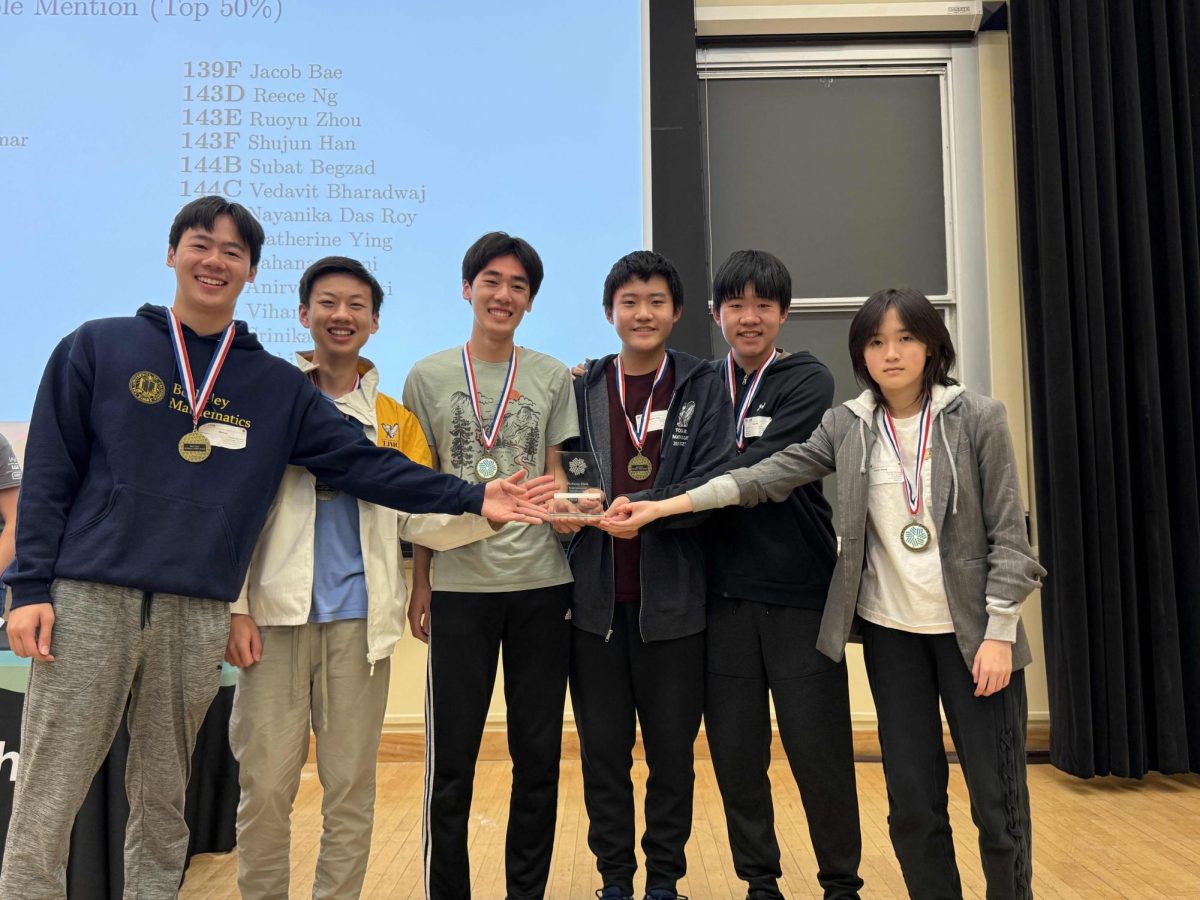Sophomore Albin Wallin recently raised his hand in English class, ready to explain the use of symbolism in “Lord of the Flies.”
When called on by English teacher Sarah Thermond, he answered in perfect English.
That may not seem like a big deal, but Wallin moved to the U.S. from Sweden at the start of freshman year. He spoke almost no English. Now, more than a year later, he is fluent.
In August of last year, Wallin learned his family was planning to move to the U.S. He had a month to pack his belongings, say his goodbyes and prepare for the intercontinental flight. The family moved because of his dad’s job working for Volvo. His job involves building prototypes and writing software for the development of autonomous cars.
Back in Sweden, Wallin received only a rudimentary education in English.
“It was really minimal exposure,” Wallin said. “We learned really basic words and phrases, like learning how to say closet, but nothing really helpful.”
Once Wallin arrived in here, however, it took him a mere month and a half to largely pick up the language.
While he was a part of the ESL program during his first semester at the school, he dropped out the following semester after feeling like he did not need it anymore.
“I just listened to people speak and I took after them,” Wallin said. “It wasn’t that hard.”
Thermond, who has been Wallin’s English 10 teacher for almost a semester now, believes that she has seen more of the effects of how quickly Wallin has picked up English rather than the process.
“It seems like he learned a lot throughout last year,” Thermond said. “I also think Albin does a good job of identifying the main idea or topic in a reading or a discussion, and that he then is able to figure out word meanings based on those context clues.”
Thermond added that in writing, Wallin uses words are phrases that are “really well-selected and not always common 10th grade vocabulary.”
“He’s got a knack for picking up both everyday language usage and the more complex terms,” Thermond said.
Besides English and Swedish, Wallin also knows a bit of Norwegian.
In the year that Wallin has spent in America, he has found noticeable differences between the American and Swedish education systems. Rather than focusing on homework and grades, the Swedish system teaches students to collaborate effectively.
“Grades don’t really matter as much, and school is just a smaller part of the day,” Wallin said. “We start at around 9:30 and get out at 3, so there’s just less school.”
And instead of presenting students with a wide variety of classes to choose from, the Swedish curriculum is standardized, with all students in one grade taking the same classes.
The biggest difference for Wallin has been the level of academic intensity of his peers here.
“I was surprised by the fact that people spend so much time studying and doing their homework,” Wallin said. “But I prefer Sweden just because I’m a little bit lazy.”
Besides academics, Wallin has observed many cultural differences.
For example, in Sweden, there is a tradition called Fika, which is the daily practice of having coffee and pastries and socializing, similar to the English concept of having afternoon tea. Also, most people travel by public transportation, resulting in a more social environment overall.
“Sweden is more casual and laid back in general,” Wallin said.
Next year, Wallin plans to return to Sweden to attend the equivalent of college, which starts at the end of sophomore year in Sweden.
Because of how rigorous the classes are at SHS compared to Sweden, Wallin believes that he will have a significant advantage over his Swedish peers in college.
“I’ve learned a lot of things that are going to be beneficial,” Wallin said. “For example, in English and math, I’m way ahead of everyone.”
With his end-of-year move back to Sweden and at least another four years of school looming before him, Wallin has still not decided on his long-term life plans.
He does know he won’t rule out someday returning to the U.S. following college.
Despite the relatively short stay, Wallin believes that he has learned many valuable lessons that he plans to take with him back to Sweden.
“I’ve learned how culturally different two countries can be, despite seeming pretty similar,” Wallin said. “But more importantly, I’ve learned how to adapt to new environments, which will help me later on in life.”




























